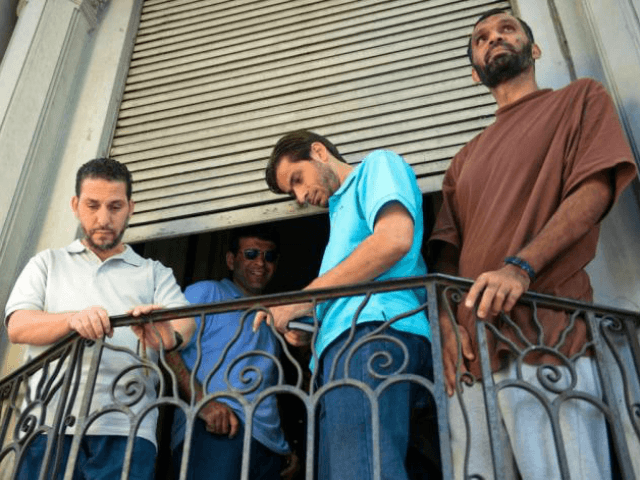Taxpayers in Uruguay will foot the bill for yet another year of subsidizing the lives of six former Guantánamo detainees accepted into the country by José Mujica, former leftist president, as Montevideo concedes the men have failed to integrate into society.
Uruguay will continue to pay their rents and provide a $450 a month stipend through 2019 despite the fact that two-thirds of the men—most from Islamic countries in the Middle East and north Africa, and one from the Palestinian territories—have found jobs.
According to the Associated Press (AP), two men work at a parking garage, one is a teacher, one is a cook, and two are unemployed.
Christian Mirza, the official in charge of the program to resettle the men, announced on Thursday that the aid granted would have expired at the end of January 2018, but that Uruguay would extend the aid for another year and may provide vocational therapy, Spanish classes, and “psychological therapy.” Mirza conceded that at least one of the former detainees did complete vocational training, but was rejected from multiple jobs due to his background as an inmate in the world’s most notorious terrorist detention facility in the world.
Prior to the government officially extending another year of aid, Mirza argued that only two of them had full-time jobs—the parking garage workers—and that the men did not make enough to successfully pay their way through life. Uruguay’s El Observador noted last week that the teacher and the cook were engaging in freelance work and could not pay a rent on that money. Prior to the approval of the new money, Mirza had requested full minimum wages for the men; aid was to conclude if they found suitable employment. It remains unclear whether they will lose the aid if they find jobs on the approved plan.
The men have been in the country since 2014 and spent much of their time complaining that the government had not done enough to help them. They initially refused to learn Spanish or accept any work, although the government paid for them to learn the local language and one of the men, Jihad Ahmad Diyab, is partly of Argentine descent.
A year after the men arrived, Uruguayan officials lamented to the AP that bringing former Gitmo detainees into the small mountain nation had been “fraught with problems” because their presence and regular insults against Uruguay outraged locals, who could not rely on similar social safety nets if they simply refused to find a job.
Two of former detainees also outraged Uruguayan society by marrying local women, who were forced to convert to Islam and divorced the men shortly after their relationship began citing beatings and domestic abuse.
In addition to angering native Uruguayans, the former detainees angered each other. In 2015, the government was forced to pay for separate living quarters from the men after neighbors called the police on them for violent “political dispute.”
Ironically, the Argentine-Syrian Diyab has caused the government the most problems. Diyab, who spent over a decade in Guantánamo after being apprehended in Afghanistan, has demanded the government allow him to, and pay for his, return to Syria. Authorities have insisted this is not part of the deal they brokered with the United States and Syria is currently too volatile to release a former detainee with a past of complimenting jihadist groups into.
Diyab has never been charged with a crime, but has said that, “with the bad treatment I’ve received, I like Al Qaeda now,” suggesting he may join the terrorist organization upon his return to the Middle East. He is also being investigated for ties to the Islamic State.
Diyab went missing in 2016 shortly before the 2016 Rio de Janeiro Summer Olympics, claiming to have traveled to Brazil for Ramadan, and was found in Venezuela, attempting to find a flight to Turkey. Later that year, after staging a hunger strike, Uruguayan officials attempted to organize a visit for Diyab to Turkey, but the Turkish government rejected him.
In July 2017, Diyab snuck out of the country and attempted to fly to Turkey through Morocco. Moroccan police deported him back to Uruguay, where officials said they were unaware that Diyab was abroad at all.
Diyab is one of the two former detainees who has failed to find any job.
Under Mujica, Uruguay began a push to ingratiate itself with the world’s leftists by accepting waves of migrants from the Middle East. In addition to the former detainees, Mujica launched a pilot program to integrate Syrian Civil War refugees into society. The nation was forced to reject male adult Syrians after some months of launching the program, however, due to a spike in domestic abuse incidents. The families that stayed also caused problems, objecting that an average job in Uruguay does not pay enough to feed families of 15 children, staging sit-ins demanding more government pay or a visa to leave the country, and, in one extreme incident, setting themselves on fire in front of government officials, demanding Uruguay pay to fly them back home.

COMMENTS
Please let us know if you're having issues with commenting.